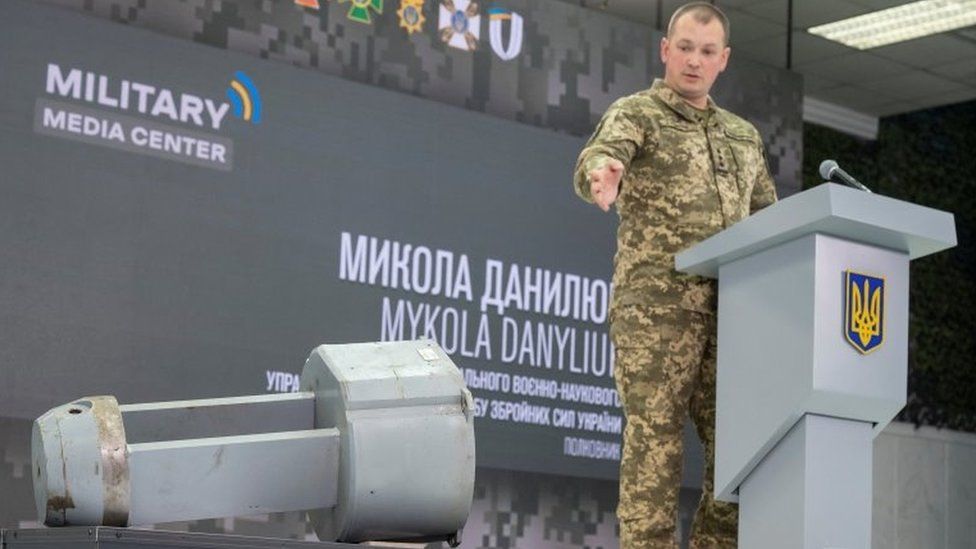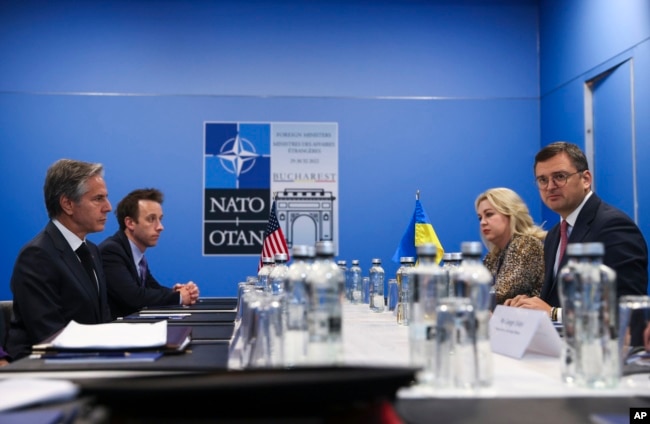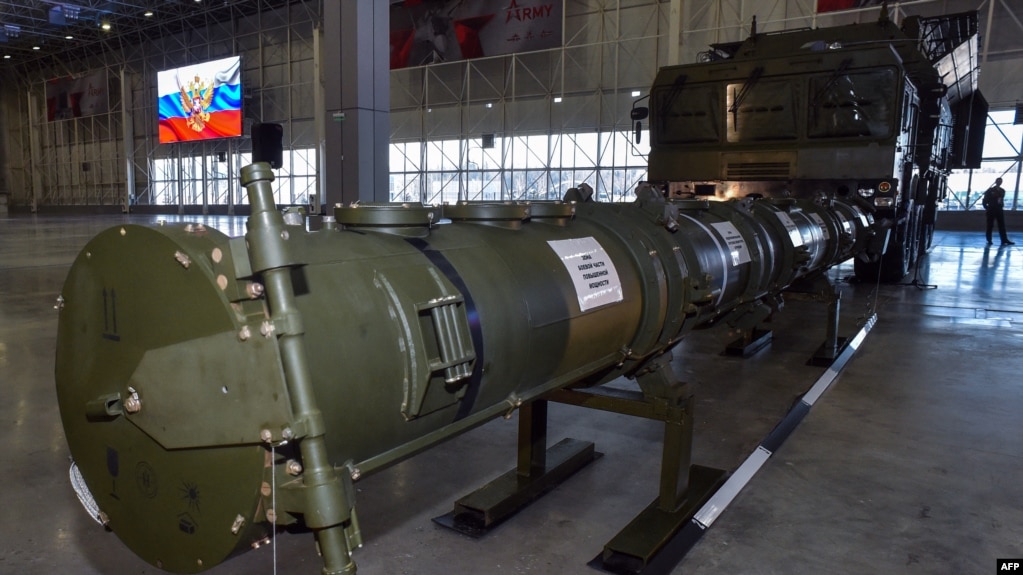Russia Hard at Work Expanding the NATO Alliance
"We want to be expanding our co-operation with partners who support Moldova ... that includes the European Union [and] NATO.""Every week there is something new, there's a new negative effect of this war on us.""Last week ... almost 80 - 90 percent of the country was plunged into darkness for most of a day. This is a really, totally unacceptable, very aggressive Russian campaign that targets Ukraine but also in complete disregard of our security."\"Neutrality does not mean demilitarization. We need the military means and all the other means to defend our country, to defend our peace, to defend our people from aggression."Nicu Popescu, Moldavian foreign minister"If there is one lesson learned from Ukraine, it's that we need to support them now ... when we have seen developments going to the absolutely wrong direction as we saw with the invasion of Ukraine.""[Bosnia -- long wracked by political instability, Russian interference and ethnic tensions -- is] important for stability in the whole of the Western Balkans."NATO Secretary-General Jens Stoltenberg
 |
| Russia is now using
nuclear-capable missiles with non-explosive warheads to exhaust
Ukraine's air defences, the Ukrainian military has said. Reuters |
Russia's
'special military invasion' of Ukraine had a purpose; to convince
Ukraine and other eastern European nations once part of the Soviet
Empire, that the Russian Federation would be extremely displeased were
they to pursue their vision of joining NATO. NATO's close alliance with
those countries is a matter of great consternation to Vladimir Putin and
the Kremlin; its constant reach into Russia's 'near abroad' has driven
Moscow to paranoia.
Now,
Russian aggression in its attitude toward its former reluctant allies,
its internal interference in Georgia and now Ukraine's experience with
Russian barbarism has convinced many of the nations in eastern Europe
formerly not quite certain their place should be in NATO, to formally
request that they be considered for membership. In battering Ukraine and
posing a sequential threat to its neighbours Russia has succeeded in
persuading them not to shy clear of NATO, but to strenuously ally
themselves with NATO through membership beyond mere casual alliance.
 |
| U.S. Secretary of State Antony Blinken meets with Ukraine's Foreign Minister Dmytro Kuleba during the NATO foreign ministers meeting in Bucharest, Romania, Nov. 30, 2022. |
Moldova,
as a neighbour of Ukraine, has been hard hit by Russia's invasion of
Ukraine, across Moldova's border. NATO is prepared to offer fresh
support to three nations which Moscow's ten-month-old war in Ukraine has
imposed repercussions upon, slopping over to cross beyond their
borders. NATO met this week and hosted foreign ministers from Moldova,
Georgia and Bosnia. The discussion with the foreign ministers of the
NATO countries revolved around how the huge security organization could
assist the three nations impacted by Russia's invasion. Concerns
revolving around energy and territorial uncertainty precipitated by the
war were under discussion.
According
to Jens Stoltenberg, the allies discussed shared security concerns with
the three countries -- Moldova, Georgia and Bosnia -- facing the
pressure of Russian dominance. The end result was that alliance members
generally agreed they would assist in training and improving the
security and defence institutions of the three nations. Moldova is
facing a severe energy crisis as a result of its reliance on Russian
energy. It has recently suffered massive power outages due to Russian
strikes on Ukraine's energy grid.
And
then there is the matter of Russian missiles having traversed Moldova's
air space, along with the debris of missiles landing on Moldovian soil.
Blasts occurred in the country's Russian-backed region of Transnistria
in April, where around 1,500 Russian troops are based. In June, Moldova
was granted EU candidate status, the very day that Ukraine too was given
candidate status in the EU.
"[Bosnia, where a government
is in the process of being formed following the elections], is very
concerned about the future."
"We
have proxies, or we had the proxies, in our government, Russian proxies.
So division in the country is deep and we hope that we will be able to
overcome it. NATO’s presence is extremely important for
Bosnia-Herzegovina because it is a guarantor of our security."
Bosnian Foreign Minister Bsera Turkovic
 |
| Russian Defense Ministry officials show off the Russia's 9M729 cruise missile at the military Patriot Park outside Moscow AFP |
Labels: Bosnia, Georgia, Moldova, NATO, Russian Invasion of Ukraine

<< Home